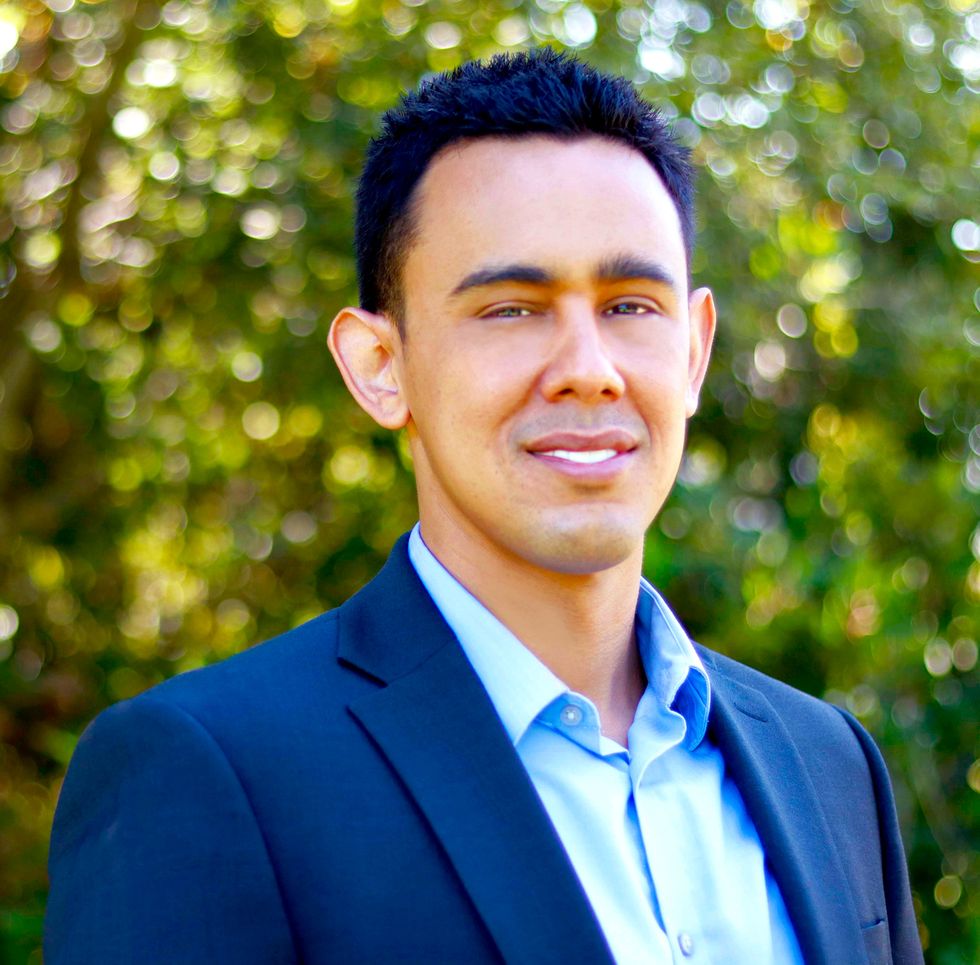One Man's Effort to Get VCs to Commit to Bringing Underrepresented Investors into Startup Deals
Rachel Uranga is dot.LA's Managing Editor, News. She is a former Mexico-based market correspondent at Reuters and has worked for several Southern California news outlets, including the Los Angeles Business Journal and the Los Angeles Daily News. She has covered everything from IPOs to immigration. Uranga is a graduate of the Columbia School of Journalism and California State University Northridge. A Los Angeles native, she lives with her husband, son and their felines.

Ten venture capital firms have committed to include a "diversity rider" — a promise to startups that they made their best effort to find underrepresented investors — in their deals.
The project was the brainchild of Alejandro Guerrero, a partner at Los Angeles-based Act One Ventures and the child of Mexican immigrants, who often found he was the only person of color in the room when investment deals north of six figures were being made.
"This is about moving diversity forward and there's two themes of how we address that: Money and access," he said.
Inspired by the George Floyd protests and the push it gave the industry to recognize long standing inequities, Guerrero reached out to several venture capital firms and investors with a proposition: add diverse investors in on the deal.
In the end, Greycroft Partners, First Round Capital, SVB Capital, Harlem Capital Partners, Fifth Wall, Plexo Capital, Precursor Ventures and Equal Ventures signed on.
Each of the firms are committed to adding "boilerplate rider language into their standard term sheets" that encourages the addition of underrepresented investors to cap tables.

Alejandro Guerrero often found he was the only person of color in the room when big investment deals were being negotiated.
Studies have shown diverse investment teams deliver better returns, Guerrero points out.
"The same way you would have to have a conversation about, 'how much money do you want to raise, at what dilution'," he said. " You want to throw in there, 'who has a diverse investor?'"
Historically, the answer has been few.
A 2018 Deloitte study found 80% of investment partners at U.S. venture firms were white; 15% were Asian/Pacific Islander; 3% were Black; and 3% were Latino. Women accounted for 14% of partners.
In Los Angeles, one of the country's most diverse metropolises, the figures were even worse. Just 2% of VC investment partners identify as African American or Latino and less than 10% of VC-funded companies are led by women or people of color, according to PledgeLA.
The chasm is more than numbers to Guerrero.
"Sometimes it is uncomfortable being the only person of color in the room, being the only Latino person in the room," he said. "You know we're talking about a town in Los Angeles that's 50% Hispanic."
The largely exclusive world of venture capital has remained largely white in part because of the way it operates, relying on tight-knit networks that circle back to people of similar backgrounds. Guerrero said he thought a lot about that and the systematic inequalities that the Black community faced as he watched the video of police killing George Floyd.
"If you're a person of color, or an underrepresented individual you can kind of feel how you know you've been overlooked for opportunities," he said. "You haven't gotten those chances, not because you don't work hard or you're not there, but because you don't come from those networks, you don't have that wealth, you don't have that privilege and that's what's hindering you and that's not your fault. Sometimes you just don't hit the birth lottery."
The effort is an attempt to unlock access to investors of color and underrepresented groups, but it also build their reputation and eventually generate more wealth through increasing who owns a stake in companies.
"Long term, this is a step forward in changing the mindset in venture to ensure more investors are frequently considered for co-investment and follow on opportunities," said Henri Pierre-Jacques, managing partner at Harlem Capital Partners, in a statement.
It comes as others in the industry are trying to address longstanding inequities. Softbank launched a $100 million Opportunity Fund to invest in minority-owned businesses and Andreessen Horowitz announced the Talent x Opportunity Fund.
Guerrero said he's hoping that it will catch on not only with venture firms but will encourage founders to ask for diverse investors.
Firms interested in joining the initiative can sign up here.
Geekwire contributed to this story.
- Navigating the Venture Capital World as a Black Person - dot.LA ›
- Can Venture Capital Solve Its Whiteness Problem? - dot.LA ›
- Want To Solve Venture Capital's Diversity Problem? Start With ... ›
- MaC Venture Capital's Marlon Nichols on 'Diversity Theater' - dot.LA ›
- Greycroft's Mark Terbeek on Investing in Gaming and B2B - dot.LA ›
- Half of Latinx-Owned Small Businesses Closed During the Pandemic, Survey Finds - dot.LA ›
- VCs Fund More Early Stage Female Founders in LA - dot.LA ›
- Day. One Ventures' Masha Drokova on Investing in LA - dot.LA ›
- Jordan Fudge Raised One of the Largest Funds in LA History - dot.LA ›
- Here Are Los Angeles' Top Venture Capitalists - dot.LA ›
- Venture Capital Funding Goes Mostly to White Male Founders - dot.LA ›
- Include Ventures Launches a $250 Million Fund 1 with a Focus on Diverse Managers - dot.LA ›
- Gen Z Prefers Video Games to Streaming - dot.LA ›
- Meet Scott Lenet, Co-Founder, President and Educator - dot.LA ›
- Why Founders Are Important to the Future of Diversity Riders - dot.LA ›
- Act One Ventures Partner on Becoming a Venture Capitalist - dot.LA ›
Rachel Uranga is dot.LA's Managing Editor, News. She is a former Mexico-based market correspondent at Reuters and has worked for several Southern California news outlets, including the Los Angeles Business Journal and the Los Angeles Daily News. She has covered everything from IPOs to immigration. Uranga is a graduate of the Columbia School of Journalism and California State University Northridge. A Los Angeles native, she lives with her husband, son and their felines.



 Image Source: Revel
Image Source: Revel
